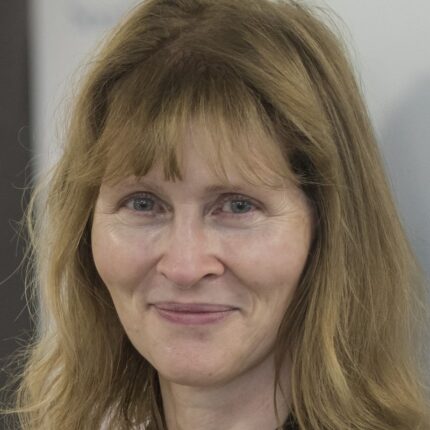Staff wellbeing is important for all organisations.
This is especially evident in higher education where research indicates that staff wellbeing impacts on the student experience, the metric that drives the sector.
In particular, reports demonstrate that stress and burnout is higher in university staff than in the general population, reflecting systemic factors such as high workloads and insecure contracts.
There has been a greater focus on this issue in recent years and staff wellbeing is acknowledged within the University Mental Health Charter. However, as the sector is squeezed financially, staff are being placed under even greater pressure to do more with less, further placing staff wellbeing at risk.
Such issues are likely to disproportionately impact those with protected characteristics – including disabled staff. However, nowhere is the need for staff support more apparent than in relation to equality and diversity, where the focus on student experience typically leaves a void for staff: For example, Universities UK notes:
We believe that anyone who would benefit from a university education should have access to one. But more than that, we want to support our members in creating inclusive environments where all students enjoy their experience and achieve their study and career goals.” (emphasis added)
But what about disabled staff?
Data from Advance HE reveal that 6.8 per cent of staff in higher education have disclosed a disability, with the Higher Education Statistics Agency (HESA) reporting this as 15,155 academic staff and 16,320 staff in non-academic roles (though the latter figure represents only those providers that complete this, optional part of the underlying HESA submission). Given that 24 per cent of working age adults have a disability and 17.3 per cent of students declare a disability, disabled staff are vastly under-represented in higher education. Representation is especially problematic for academics, as declarations are consistently higher among professional and support staff. It is likely that the rates of disabled staff are impacted by a range of factors including a reluctance to disclose, with sharing a disability likened to “coming out”.
Even the words “disclosure” and “declare” themselves suggest that sharing your disability is something to be concerned about; hence inclusive language is important in all discussions of disability. Disclosure is, of course, particularly important for staff with non-visible disabilities who may otherwise not have their impairments acknowledged. Being visible is also central to challenging ableism and collective advocacy.
Disabled staff face a number of barriers to inclusion. For example, line management support is inconsistent and disabled staff experience glass partitions and ceilings that limit both horizontal and vertical movement. It should, however, be emphasised that disabled staff are not a homogenous group.
Staff with a range of impairments are included within available data, including those disclosing specific learning differences and longstanding illness or health conditions. Further, some staff disclose multiple disabilities, impairments and conditions. Care should be taken to understand the experiences of staff with specific conditions or condition types and to acknowledge the extent to which experiences differ both across and within categories of disability.
Staff are legally protected by the Equality Act (2010) which requires workplaces to make reasonable adjustments for impairments. Negotiating this process can, however, be exhausting for staff who have to advocate for themselves and make a case for how the employer should operationalise the weasel word “reasonable”. Staff can be encouraged to disclose disabilities though an improved commitment to support, for example by universities being flexible in their application of accommodations and line managers being given training to appreciate that staff may have fluctuating conditions and that the same impairment can impact staff differently.
Wider support is also welcomed through government initiatives such as Access to Work, though accessing timely support is challenging in the UK context where reported wait times for assessment have increased significantly.
Disabled Staff Networks can be a core part of the support for workers with impairments; these can offer a place for social connection, an empathic ear, and a place where staff can share experiences and strategies to respond to workplace challenges. In addition, the National Association of Disabled Staff Networks (NADSN) connects and represents disabled staff networks; here members share resources, promote events and work together to bring about change. NADSN has been supporting disabled staff networks to drive real policy change within higher education institutions (HEIs) and, over the past decade, has responded to national consultations and contributed to policy development thus amplifying the voices of all disabled staff and providing challenge to colleagues leading equality, diversity and inclusion (EDI); there are excellent resources on their website for anyone wanting to learn more.
While NADSN’s work has been powerful for disabled staff, there is a lack of wider support from influential organisations to drive equality and diversity in relation to disability in universities. Important progress is being made in highlighting key issues relating to race and gender; in particular the Race Equality Charter and Athena Swan are pressing for transformative change. Although these schemes have not been without criticism, they have increased visibility of equality issues and championed a cultural shift. It is also important to recognise that intersectionality is highlighted within these charters, pertinent to staff who face more than one form of discrimination, such as disabled women in academia who benefit from support with progression. Nonetheless, a disability charter has been conspicuous by its absence.
Work to improve disability inclusion for staff in universities is taking place, for example Evans and Zhu’s (2022) Disability Inclusion Institutional Framework stresses an integrated approach to disability inclusion, and places equal emphasis on staff and student disability inclusion. They argue that if disability inclusion is to improve for students we need to start with staff. There are also excellent examples of work such as podcasts sharing experiences of disability in HE; these increase visibility of disability, help to connect the community, and promote learning from each other. Within research, disability is being addressedand there is greater focus in both policy and practice on the development of anti-ableist research cultures that enable disabled researchers and professional services colleagues. Also pressing for change is the University Mental Health Charter where wellbeing of staff is acknowledged within domain 3 and inclusivity noted as an enabling theme; the charter describes the challenges that staff have to navigate such as issues with adjustments, social barriers, and the impact of the built environment.
What’s next?
More focus and commitment is needed to respond to disability initiatives and drive impactful change. In 2022 colleagues who had met via NADSN began discussing how to respond to this need. Rather than creating a charter like the examples above, we set out to develop a mechanism to encourage universities to share best practice relating to the inclusion of disabled staff. RIDE Higher, standing for “Realising the Inclusion of Disabled Employees” in Higher Education, was born and today it is a core initiative of NADSN.
RIDE Higher is chaired by Melanie Best of the University of Wolverhampton, and run by and for disabled staff working in higher education; our steering group includes staff from HE institutions across the UK (Please connect with us through NADSN’s news page and social media channels). Its mission is to change the HE landscape and ensure that disabled employees are seen, valued, and can thrive.
RIDE Higher is committed to a research-informed approach to driving disability inclusion across the sector. Central to this initiative, is the need for better understanding the lived experience of disabled staff working in higher education. This is why RIDE higher is launched the first National Disabled Staff Survey (NDSS) during Disability History Month, which fittingly, focussed on “livelihood and employment” this year.
We invite all staff who are Disabled, Deaf, Neurodivergent and living with a long-term health condition in UK universities to share their experiences with us We welcome your perspectives, whatever your role in the university, whether your experiences of disability are visible or non-visible, whether you have a diagnosis confirmed or not, and whether you have disclosed your impairment or health condition to your university or not. We acknowledge that identity is complex and that you may have an impairment but not identify as disabled; we welcome your input however you choose to identify.
Acknowledgements: As authors we would like to thank those who provided peer feedback during the development of this article including the RIDE Higher steering group (Melanie Best, Hamied Haroon, Dan Goodley, Elisabeth Griffiths, Meredith Wilkinson, Gayle Brewer, and Anica Zeyen).















This is all true.
But another problem is the assumption that we can just catch Covid over and over with no consequences.
This is generally unaddressed and nobody wants to discuss it.
They’ll just come up with another charter that they can all congratulate themselves for signing, cart out a few upper management bonuses and ignore the need to do anything about it, just like every time before.